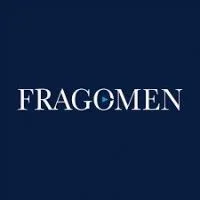- within Transport topic(s)
At a glance
- A final regulation that makes important modifications to the H-1B program will be published tomorrow, with an effective date of January 17, 2025; an advance copy of the rule is available.
- The rule revises the definition of the H-1B specialty occupation, strengthens cap gap protections for F-1 students awaiting a change of status to H-1B, strengthens USCIS's site visit authority, clarifies the processes and requirements for amending nonimmigrant petitions, and codifies the agency's longstanding policy of deference to its prior approvals, among other provisions.
The issue
The Department of Homeland Security (DHS) has finalized the remaining portions of its long-anticipated H-1B modernization regulation, first proposed in October 2023. The H-1B cap provisions of the rule went into effect in March of this year, and the remainder of the rule will be published in the Federal Register tomorrow and will take effect on January 17, 2025. The final rule is nearly identical to the agency's proposed rule, with a few revisions that are largely favorable to employers.
A closer look
The following are some key provisions in the final regulation:
- Qualifying H-1B occupations. The rule revises the definition of an H-1B specialty occupation. Some of the revisions introduce greater flexibility to the definition, and some could narrow eligibility. In particular, the rule clarifies that an occupation "normally" requiring a bachelor's degree doesn't mean that it must "always" require a bachelor's degree. It also clarifies that a position may qualify as a specialty occupation even if the employer accepts a range of qualifying degree fields, as long as each of those fields is "directly related" to the duties of the H-1B position. In the final rule, DHS has added a reasonable definition of "directly related," defining the term to mean that there is a "logical connection" between the required degree and the H-1B position duties. The final rule importantly omits a provision contained in the proposed rule that would have limited H-1B eligibility for those with more general degree titles such as business administration or liberal arts.
However, the regulation includes a provision for certain off-site placements, providing that when a beneficiary is "staffed" to a third party, the requirements of that third party, and not the petitioner, would be considered most relevant when determining whether the position is a qualifying specialty occupation. The final rule defines "staffing" to mean that the foreign national will be contracted to fill a position in the third party's organization and become a part of that third party's organizational hierarchy – not merely providing services to the third party.
- Deference to prior nonimmigrant adjudications. The rule codifies and slightly expands USCIS's current policy of deference to its prior adjudications, giving employers greater predictability when filing a Form I-129. The regulation provides that when adjudicating a Form I-129 involving the same parties and same underlying facts, USCIS should defer to its prior I-129 approval, unless there has been a material change in circumstances or eligibility requirements, a material error in the prior approval, or new material adverse information. Unlike the current version of the policy, the regulatory provision applies to all Form I-129 adjudications by USCIS, not just requests for extensions of stay.
The general deference policy was rescinded during the first Trump Administration, resulting in a significant surge in requests for evidence (RFEs) and case denials. The Biden Administration reinstated the policy and, in codifying it now, makes the policy less vulnerable to rescission.
- H-1B location changes and petition amendments. The rule codifies U.S. Citizenship and Immigration Services' (USCIS) longstanding requirement that an employer must amend a nonimmigrant petition due to material changes in an H-1B worker's place of employment, and requires the amendment to be filed before the change takes place. The rule also codifies the circumstances under which a location change would not require an amendment, including location changes within the area of intended employment listed in the DOL labor condition application (LCA) supporting the existing petition.
- Business owners' H-1B eligibility. The regulation clarifies that H-1B beneficiaries who have a controlling interest in the petitioning entity may be eligible for H-1B status, as long as the beneficiary will perform H-1B-caliber specialty occupation duties a majority of the time; however, the initial and first extension of such petitions will be limited to 18 months, rather than the normal H-1B maximum petition validity period of three years.
- Bona fide H-1B employment. The rule shifts the focus from the current regulation's requirement to show an employer-employee relationship to establishing the existence of a bona fide job offer, and it codifies the agency's longstanding practice of requesting contracts and other evidence of a bona fide job offer but eliminates the itinerary requirement for H-1B petitions. In response to public comments, the final rule adds a new provision clarifying that a petitioner is not required to establish specific day-to-day assignments for the entire time requested in the H-1B petition. The rule also adds a requirement that the H-1B petitioner have a legal presence in the United States and be amenable to service of process here.
- Greater F-1 cap-gap protections. The final rule provides a longer cap-gap protection period (extending the period from October 1 to potentially as late as April 1 of the following calendar year) for F-1 students who are beneficiaries of timely filed, nonfrivolous petitions to change status to H-1B. The rule provides up to an additional six months of status and employment authorization to help qualifying F-1 status holders avoid lapses in status and work authorization while awaiting a change to H-1B status.
- Mitigation of the impact of lengthy petition adjudications. The rule allows USCIS to offer H-1B employers the opportunity to amend a petition's requested nonimmigrant employment validity period if the requested validity period has already passed by the time the petition is adjudicated. If the existing LCA does not cover the new validity period, the employer will be required to provide a new LCA and meet the higher of the current prevailing or actual wage and will not be permitted to reduce the offered wage below the wage listed in the original petition.
- Codification of the site visit program. The final rule codifies and strengthens USCIS's long-established Fraud Detection and National Security (FDNS) unit's site visit program and clarifies that refusal to comply with a site visit could result in the denial or revocation of a petition. The rule also codifies the authority of DHS to conduct site visits at the location where the H-1B employee works, has worked, or will work, including and third-party worksites, among other locations related to the H-1B employment.
- Modest expansion of cap exemptions. The final rule would modestly expand the scope of certain H-1B cap exemptions. The revisions are intended to recognize that qualifying cap-exempt nonprofit and governmental research organizations and nonprofits affiliated with institutions of higher education may have more than one fundamental activity or mission, beyond just research or education, and the revised regulations allow for cap exemption even if research or education is not the organization's primary activity or mission, as long as research or education is one of the organization's fundamental activities.
What this means for employers
Employers should prepare for some potential disruption to H-1B case processing and adjudication after the new H-1B rule is implemented on January 17. The rule will require a new Form I-129, which will become mandatory on January 17. USCIS adjudicators may take some time to become familiar with the new legal standards and rules. Employers should work with their immigration counsel to understand and prepare for the change.
The new rule takes effect just days before President-Elect Donald Trump is sworn in to office on January 20, and it is not yet clear whether the new administration will seek to make changes to or withdraw the regulation. Any such action would require notice and an opportunity for the public to provide feedback, a process that typically takes several months to unfold.
The content of this article is intended to provide a general guide to the subject matter. Specialist advice should be sought about your specific circumstances.


